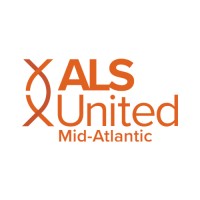
ALS United Mid-Atlantic
The Mission of ALS United Mid-Atlantic is to unite and empower the ALS community through a collaborative approach to fostering bold research initiatives, advancing national and state advocacy, and providing comprehensive care and support to individuals and families affected by ALS. ALS United Mid-Atlantic serves more than 1,200 people each year and covers a broad service area that encompasses eastern and central PA, southern and central NJ, and all of Delaware.






